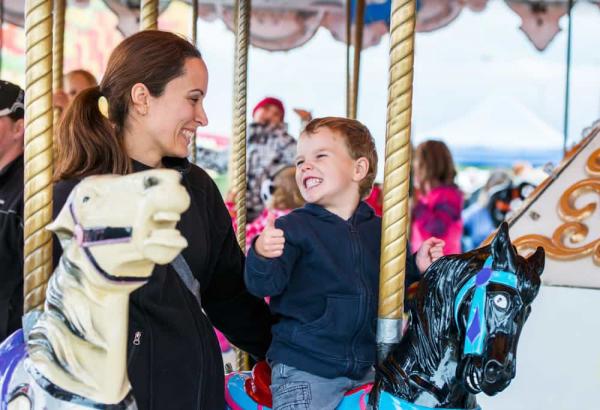
Helicopter parent. We've all heard the term. With it comes a negative connotation derived from others who think a parent's reins need to be loosened in order for children to learn and grow and experience life.
In certain aspects, this is true. Children do need to learn from their own experiences. But children also need to be protected to an appropriate extent.
Today's world is not like it used to be. In some ways, that is a wonderful thing. Unfortunately, the world today is also very unsafe, and children are growing up in a difficult time. They need parents who care about their well-being.
Here's why it's OK to have a little "helicoptering" in you as a parent, and why it's not a bad thing.
Walking alone
Years ago, the idea of walking to school never seemed unsafe. Walking to and from friends' homes, to and from the park, or riding bikes and scooters outside alone was the norm for neighborhood kids.
Recently, I learned that children walking only several blocks from school to their homes in a nearby neighborhood were telling their parents they were being followed by strangers in cars as they walked. This neighborhood was friendly and quiet, and many parents were shocked to hear the news.
At stressful times, it may feel necessary to push your kids out the door for some outside play time. But be careful about leaving them unsupervised. As they walk to or from a friend's or neighbor's, take a few minutes to watch and be sure they get there and back safely. As they ride their scooters, be sure they know their boundaries on where or how far they are allowed to go. Sit on the porch while you get some work done or get some fresh air as they ride or play so you can keep an eye on them while getting a breather for yourself.
Leashes (literally)
I know this sounds ridiculous; they are not dogs. But you've seen the little monkey leash backpacks for toddlers. Here's my point: If you have a toddler, you know they are fast. I am not suggesting regularly keeping one of these on your toddler or young child. But I am saying that, in crowded places like airports, malls or amusement parks, a running toddler is neither safe nor easy to constantly chase around. You are not a terrible parent for occasionally having one of these on your child in order to keep him or her safe in a potentially dangerous atmosphere.
Kids enjoy these backpacks - they're squishy stuffed animals with compartments to hold their little kid-things. So ignore the judgy looks from other parents (or non-parents who have no idea yet), and be grateful you are not running around like a crazy person trying to keep up with a toddler who was just standing beside you 10 seconds ago.
Big groups
Be sure to keep tabs on where children are, and that they know to stay near family members. As nice as it may be to have others helping with the child-watching when a large group of family members or friends is together, it sometimes makes keeping little ones safe more difficult. Family members are constantly passing little ones around or taking turns entertaining them. Children have gone missing in circumstances such as these because it is easy to assume someone else in your group is watching a child while he or she may be thinking the same thing. You certainly want to encourage play with your child and close friends or relatives, but keep a constant eye on where the interaction occurs.
Passwords
Most parents have discussed "stranger danger" with their children. I recently heard of an experience where a child was approached after school by a stranger who told the boy that he was a friend of the child's mother and that she had asked him to pick him up that day. The child automatically knew to ask the man what "the password" was (a word that he and his mother had come up with for situations such as these, so that the child would know whether he could trust someone like this). The man clearly did not know the password, and the child knew to run away from him.
The password system has been successful for many families. Along with that, be sure to discuss with them the importance of staying in safe places and knowing to go to trusted, familiar adults for help.
As children get older and are able to be home alone occasionally, frequently discuss safety issues. Let them know to not answer the door for anyone, and to not tell other people they are going to be home alone. Then test this arrangement by using a friend you trust to "test" your child's obedience to these rules. Send her over to knock on the door or to call and ask if you are home.
Children do need their own room to grow. But there is a difference between loosening the reins to give them some freedom and allowing them to be in unsafe situations. These, along with other things, will help keep your children safer, which never is a bad thing.

